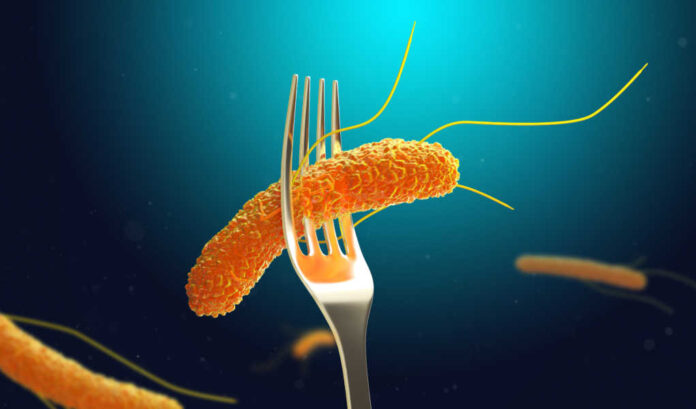
Food poisoning is relatively common but rarely life-threatening.
In the United States, approximately 48 million people get sick from foodborne illness each year, and less than 0.3% of those people are hospitalized – and nearly all of these hospitalized patients recover.
Signs and symptoms of food poisoning include:
- diarrhea
- nausea
- vomiting
- abdominal cramps
- mild fever
- headache
- weakness
- loss of appetite
See your doctor if you have severe symptoms such as:
- Bloody diarrhea
- High fever (102°F or above)
- Frequent vomiting that prevents keeping liquids down
- Signs of dehydration include little or no urination, a very dry mouth, and throat, or feeling dizzy when standing up
- Diarrhea that lasts more than three days
Depending on the type of germ, symptoms may last as little as 30 minutes or up to 4 weeks after exposure. Most cases resolve in about a week, with or without treatment.
Common Causes of Food Poisoning
Foodborne illnesses come from food (or drinks) that have been contaminated with bacteria, viruses, or parasites.
The heat from cooking typically kills these harmful pathogens, but sometimes the food is not cooked to the right temperatures. Or, the food is not cooked at all, not washed thoroughly, or prepared by someone who is sick, not wearing gloves, or has unwashed hands.
The most common germs that cause food poisoning (and foods they are commonly found in) are:
- Norovirus – leafy greens, fresh fruits, shellfish, contaminated water, touched by an infected person or contaminated surface
- Salmonella – raw or undercooked poultry and meat, eggs, unpasteurized milk, raw fruits and vegetables, live animals
- Clostridium perfringens – beef or poultry, gravies, dried or pre-cooked foods
- Campylobacter – raw or undercooked poultry, unpasteurized milk, contaminated water
- Staphylococcus aureus – sliced (uncooked) deli meats, pudding, pastries, sandwiches
While much less common, cases that lead to hospitalization are often the result of:
- Clostridium botulinum (botulism) – improperly canned or fermented foods (often homemade)
- Listeria – soft cheeses, raw sprouts, melons, hot dogs, deli meats, smoked seafood, unpasteurized milk
- Escherichia coli (E. coli) – raw or undercooked ground beef, unpasteurized milk, and juice, raw vegetables (lettuce), raw sprouts, contaminated water
- Vibrio – raw or undercooked shellfish, particularly oysters
Treating Food Poisoning
Staying well-hydrated is critical because of the loss of fluids through diarrhea and vomiting. Drink lots of water, tea, or juice – avoid caffeine and alcohol as this may irritate your digestion even more.
Over-the-counter medicines like Imodium or Pepto-Bismol can help suppress nausea and diarrhea. However, vomiting and diarrhea are how your body gets rid of toxins, so it might not always be a good idea to mask these symptoms.
Depending on the severity and type of infection, a doctor may prescribe antibiotics, antiparasitics, antivirals, or antitoxins. If you are dehydrated, they can restore lost fluids and electrolytes with an IV.
Get plenty of rest and eat bland, easily digestible foods such as:
- bananas
- rice
- oatmeal
- bland potatoes
- boiled vegetables
- crackers
- toast
- gelatin
And avoid:
- fatty foods
- fried foods
- spicy foods
- sugary foods
- dairy products (milk, cheese)
- caffeine
- alcohol
- nicotine
Always make sure all the food you eat is fully cooked, washed thoroughly and stored correctly, and prepared by clean hands in a safe kitchen environment.






















